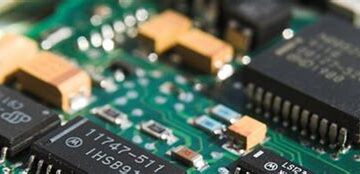Introduction to Solder Wire Manufacturers
Solder wire manufacturers play a crucial role in the electronics industry by producing the essential material used for creating electrical connections and joining metal surfaces. Solder wire is a fusible metal alloy that typically consists of tin and lead, although lead-free alternatives are becoming increasingly popular due to environmental and health concerns. These manufacturers specialize in creating solder wire with various compositions, diameters, and flux core types to cater to the diverse needs of industries such as automotive, aerospace, telecommunications, and consumer electronics.
The Importance of Solder Wire in Electronics Manufacturing
Solder wire is indispensable in the electronics manufacturing process for several reasons:
-
Creating electrical connections: Solder wire is used to establish reliable electrical connections between components on printed circuit boards (PCBs) and other electronic devices.
-
Mechanical support: In addition to electrical connectivity, solder joints provide mechanical support to components, ensuring their stability and durability.
-
Heat dissipation: Solder joints help dissipate heat generated by electronic components, preventing overheating and potential damage.
-
Facilitating repairs: Solder wire enables technicians to repair and modify electronic devices by allowing them to remove and replace components as needed.
Types of Solder Wire
Solder wire manufacturers offer a variety of solder wire types to meet the specific requirements of different applications. The main types of solder wire include:
Tin-Lead Solder Wire
Traditionally, tin-lead solder wire has been the most common type used in the electronics industry. The typical composition is 60% tin and 40% lead (Sn60Pb40), which offers a low melting point, good wetting properties, and excellent electrical conductivity. However, due to the hazardous nature of lead, many countries have implemented regulations restricting the use of lead-based solder in electronics manufacturing.
Lead-Free Solder Wire
In response to environmental and health concerns, solder wire manufacturers have developed lead-free alternatives. The most common lead-free solder alloys include:
-
Tin-Silver-Copper (SAC): SAC alloys, such as Sn96.5Ag3.0Cu0.5, have become the standard lead-free solder for many applications. They offer good mechanical strength, reliability, and wetting properties.
-
Tin-Copper (SnCu): SnCu alloys, like Sn99.3Cu0.7, are cost-effective lead-free options with acceptable electrical and mechanical properties.
-
Tin-Silver (SnAg): SnAg alloys, such as Sn96.5Ag3.5, provide excellent fatigue resistance and are often used in high-temperature applications.
Flux Core Types
Solder wire manufacturers also offer different flux core types, which help remove oxides and impurities from the metal surfaces during the soldering process. The main flux core types are:
-
Rosin (R): Rosin flux is the most common type and is suitable for general-purpose soldering. It is available in three activity levels: RMA (Rosin Mildly Activated), RA (Rosin Activated), and RSA (Rosin Strongly Activated).
-
No-Clean (NC): No-clean flux leaves minimal residue after soldering, eliminating the need for post-soldering cleaning. This flux type is ideal for applications where cleaning is difficult or impractical.
-
Water-Soluble (WS): Water-soluble flux is easily removed using water or mild solvents after soldering. This flux type is preferred when a clean and residue-free surface is required.
Solder Wire Diameters and Packaging
Solder wire manufacturers offer their products in various diameters and packaging options to accommodate different soldering techniques and user preferences.
Common Solder Wire Diameters
Solder wire is available in a range of diameters, typically expressed in gauges (AWG) or millimeters (mm). Some common diameters include:
| Diameter (mm) | AWG |
|---|---|
| 0.25 | 30 |
| 0.50 | 24 |
| 0.75 | 20 |
| 1.00 | 18 |
| 1.50 | 15 |
The choice of solder wire diameter depends on factors such as the size of the components being soldered, the soldering iron tip size, and the desired solder joint profile.
Packaging Options
Solder wire manufacturers offer various packaging options to suit different user needs and storage preferences:
-
Spools: Solder wire is commonly sold on spools, with lengths ranging from a few meters to several hundred meters. Spools are convenient for storage and allow for easy dispensing during the soldering process.
-
Tubes: Some manufacturers offer solder wire in small tubes, which are ideal for portable soldering kits or for users who require smaller quantities of solder wire.
-
Coils: Solder wire coils are another packaging option, often used for larger-scale production or when a specific length of solder wire is required.

Selecting the Right Solder Wire
When choosing solder wire, consider the following factors to ensure optimal performance and compliance with relevant standards and regulations:
-
Alloy composition: Select the appropriate solder alloy based on the application requirements, such as melting temperature, mechanical strength, and electrical conductivity.
-
Flux core type: Choose the flux core type that best suits the soldering process and post-soldering cleaning requirements.
-
Diameter: Consider the size of the components being soldered and the desired solder joint profile when selecting the solder wire diameter.
-
Compliance with standards: Ensure that the solder wire complies with relevant industry standards and regulations, such as RoHS (Restriction of Hazardous Substances) and REACH (Registration, Evaluation, Authorization, and Restriction of Chemicals).
Top Solder Wire Manufacturers
Several renowned solder wire manufacturers cater to the global electronics industry. Some of the top manufacturers include:
-
Kester: Kester is a leading manufacturer of solder wire, solder paste, and flux. They offer a wide range of solder wire products, including lead-free and tin-lead alloys, various flux core types, and diameters.
-
Alpha Assembly Solutions: Alpha Assembly Solutions, a part of the MacDermid Performance Solutions group, is a global supplier of solder wire, solder paste, and other assembly materials. They offer a comprehensive range of solder wire products for diverse applications.
-
Heraeus Electronics: Heraeus Electronics is a prominent supplier of solder wire, solder paste, and other assembly materials. They provide a variety of solder wire alloys, flux core types, and diameters to meet the needs of the electronics industry.
-
AIM Solder: AIM Solder is a global manufacturer of solder wire, solder paste, and flux. They offer an extensive range of solder wire products, including lead-free and tin-lead alloys, various flux core types, and diameters.
-
Indium Corporation: Indium Corporation is a leading supplier of solder wire, solder paste, and other electronic assembly materials. They provide a wide selection of solder wire alloys, flux core types, and diameters for various applications.
Future Trends in Solder Wire Manufacturing
As the electronics industry continues to evolve, solder wire manufacturers are adapting to new trends and challenges:
-
Increasing demand for lead-free solder: With growing environmental and health concerns, the demand for lead-free solder wire is expected to rise. Manufacturers are focusing on developing and optimizing lead-free alloys that offer performance comparable to tin-lead solder.
-
Miniaturization of electronic components: The trend towards miniaturization in the electronics industry requires solder wire manufacturers to produce finer-gauge solder wire and develop alloys that can effectively solder smaller components.
-
High-temperature applications: As electronic devices are exposed to increasingly harsh environments, solder wire manufacturers are developing alloys that can withstand higher operating temperatures and provide improved thermal cycling performance.
-
Sustainable and eco-friendly production: Solder wire manufacturers are adopting sustainable practices and implementing eco-friendly production processes to reduce their environmental impact and meet the growing demand for greener products.
Frequently Asked Questions (FAQ)
- What is the difference between lead-free and tin-lead solder wire?
-
Lead-free solder wire does not contain lead, which is a hazardous substance. It is made from alloys such as tin-silver-copper (SAC), tin-copper (SnCu), or tin-silver (SnAg). Tin-lead solder wire, on the other hand, typically consists of 60% tin and 40% lead (Sn60Pb40). Lead-free solder wire is becoming more common due to environmental and health concerns, while tin-lead solder wire is still used in some applications where allowed by regulations.
-
How do I choose the right solder wire diameter?
-
The choice of solder wire diameter depends on factors such as the size of the components being soldered, the soldering iron tip size, and the desired solder joint profile. Generally, smaller-diameter solder wire is used for soldering smaller components and creating finer solder joints, while larger-diameter solder wire is used for soldering larger components and creating more substantial solder joints.
-
What is the purpose of flux in solder wire?
-
Flux is a chemical compound that helps remove oxides and impurities from the metal surfaces during the soldering process. It promotes wetting and aids in the formation of a strong and reliable solder joint. Solder wire with a flux core eliminates the need for a separate flux application, making the soldering process more efficient and convenient.
-
Can I use lead-free solder wire for all applications?
-
Lead-free solder wire can be used for most electronics applications, and it is mandatory in many countries due to regulations such as RoHS. However, some specific applications, such as high-temperature or high-reliability systems, may still require the use of tin-lead solder wire. It is essential to consult the relevant standards and regulations for your specific application to ensure compliance.
-
How should I store solder wire?
- Solder wire should be stored in a cool, dry place away from direct sunlight and moisture. Exposure to high temperatures or humidity can cause the flux core to degrade, leading to poor soldering performance. Solder wire should also be kept in its original packaging or on a spool to prevent tangling and damage.
Conclusion
Solder wire manufacturers are essential to the electronics industry, providing the crucial material needed for creating electrical connections and joining metal surfaces. With a wide range of alloys, flux core types, and diameters available, these manufacturers cater to the diverse needs of industries worldwide. As the electronics landscape evolves, solder wire manufacturers continue to innovate and adapt, developing new alloys and production processes to meet the demands of miniaturization, high-temperature applications, and environmental sustainability. By understanding the types of solder wire, their properties, and the factors to consider when selecting the right product, electronics manufacturers can ensure optimal performance and reliability in their soldering processes.



0 Comments